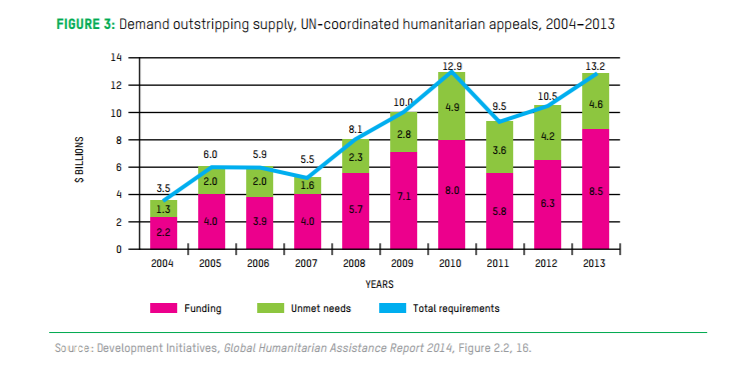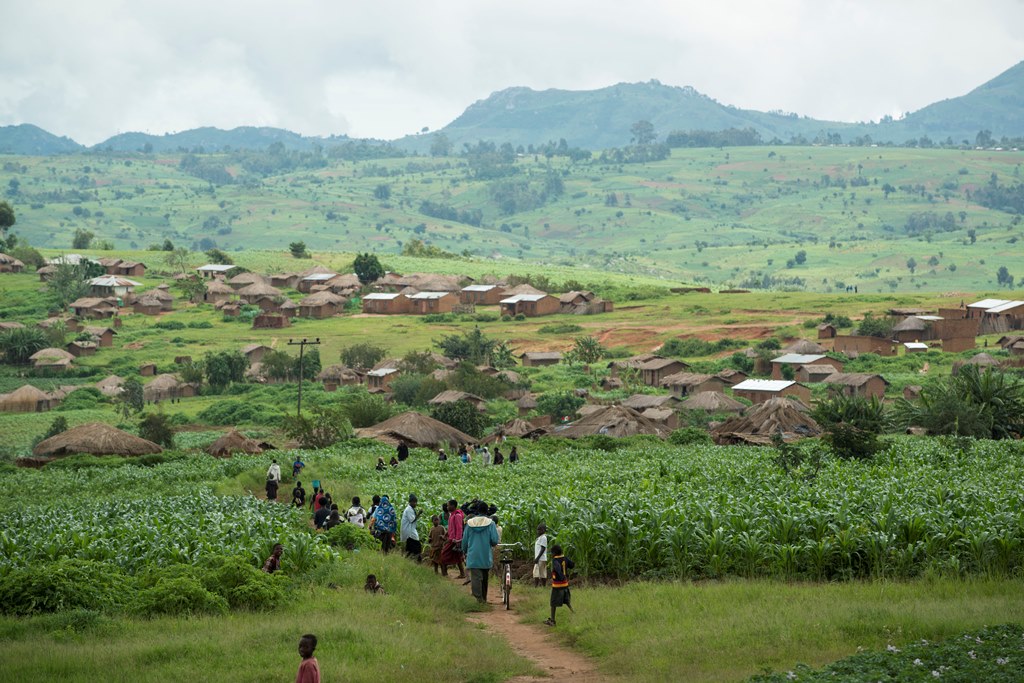Oxfam America has recently released a report, Righting the Wrong: Strengthening Local Humanitarian Leadership to Save Lives and Strengthen Communities, addressing the shortfalls of humanitarian assistance, and offering solutions to this complex issue.
In 2014, humanitarian assistance hit a record high of $24.5 billion. Within the last 70 years, aid workers have made massive strides in providing life-saving services, such as healthcare, water, and physical protection.
However, demand is rapidly outstripping supply. In 2014 alone, 60 million people were displaced by political oppression and violent conflict. 138 million people were affected by catastrophic climate disasters, and since 1965 the number of these disasters has increased from 52 to an all-time high of 401 in 2005. These projections are expected to continue, as climate change causes more frequent droughts, floods and storms.
Today, only a small fraction of humanitarian aid is provided to local actors. More often, community leaders take direction from international agencies, leaving them in the lesser role of subcontractors instead of equal partners in their own countries. Oxfam America asserts that this arrangement leaves the actors no better suited in addressing a new crisis with autonomy.
Oxfam American asserts that these long-term aid shortages do not have a concrete solution. From 2004 to 2013, donors met less than two-thirds of humanitarian need requested annually. These shortfalls had devastating consequences, such as the World Food Program (WFP) suspending food aid for 1.7 million Syrian refugees in both 2014 and 2015. These cuts can be attributed to weaker economies and large cuts from usual donors such as Australia and Spain. Oxfam asserts that the main problem with humanitarian assistance is that countries and international organizations are not addressing these issues as top policy concerns.

Therefore, humanitarian assistance is often too little too late. As described by former UN Emergency Relief Coordinator Jan Egeland, “Imagine if your local fire department had to petition the mayor for money to turn on the water every time a fire broke out”.
Too often, priorities in donor countries trump those of the in-need recipient countries. For instance, the US frequently provides in-kind food aid from surplus US harvests. This practice can drive down prices in the recipient country and diminish local farm income. This can cause dependence or delays in food deliverance, as was seen with the Haitian earthquake. The US provided 72% of assistance in the form of in-kind food donations, and only 28% as cash transfers or vouchers. By contrast, Canada, Brazil, France, and the WFP provided assistance with food purchases from Haitian farmers.
The report emphasizes that it would be more cost effective to prepare communities in advance for shocks such as floods, earthquakes, and tsunamis, instead of providing assistance after the crisis has occurred. Regardless of this discovery after the crisis of the drought in the African Horn and promises from the UN, donors, and governments, only 0.4% of official development assistance over the last 30 years has been spent reducing the risk of disasters.
In order to fix this broken system, Oxfam America demands that humanitarian assistance must shift towards an emphasis on local actors. The report suggests:
- An insistence on more and predictable humanitarian funding
- An increase in direct humanitarian funding to national governments, as well as to national and local NGOs
- An increase in investment in disaster risk reduction before crises hit
- More emphasis on strengthening local capacity
Regardless of amazing accomplishment over time, the humanitarian aid community needs to do better. Crises will continue to accumulate in the future due to climate change and intractable conflicts. As the report concludes, “if we, the international humanitarian community, want to help local communities, we need to start trusting them more with their own future.”


